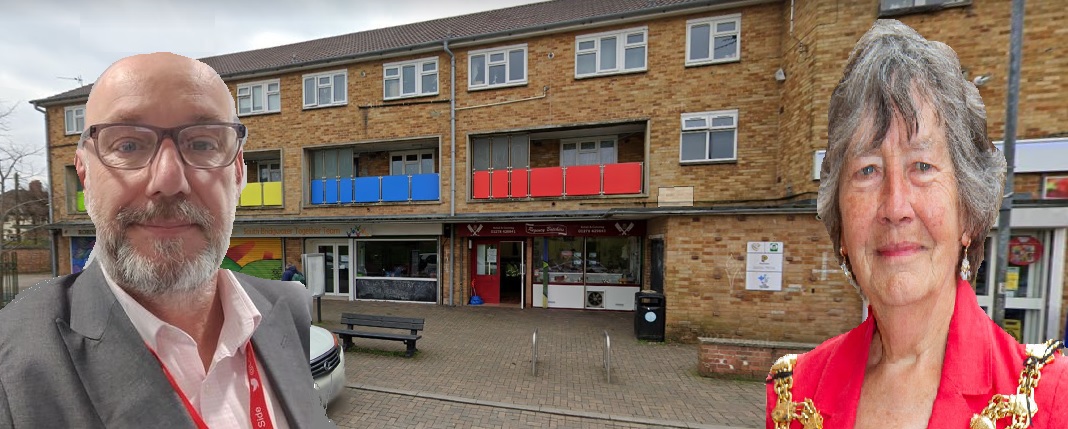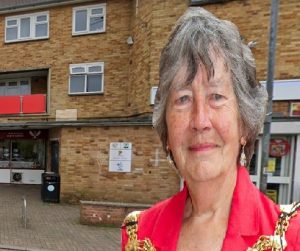
On Friday, 25th November, the South Bridgwater Local Pantry celebrates two years of fighting food waste and tackling hunger. One of six pantries dotted across the county, the South Bridgwater Local Pantry opened its doors for the first time two year ago. Now, the pantry now has fifty members, an increase from the original thirty and has helped 183 households. Many of these families have gone on to support themselves or into paid work. Cllr Leigh Redman (Bridgwater, Hamp) was a founder supporter and fellow councillor Liz Leavy (Mayor of Bridgwater) are long standing volunteers. Leigh says “With the dissolvement of SDC, Hamp Community Association (HCA) are looking to take the pantry on, we already operate as a bank for them, holding and generating cheques, we hope they can be a sub committee off of the community association. The pantry in South Bridgwater is based in Hamp and run by Becky & Terri, two amazing local ladies who volunteer to keep the service running.”
Simple Model
The Local Pantry model is simple. Members join for an initial six-month period during which time they can access the pantry each week and rescue food that would otherwise go to waste for a fraction of what it could cost in the supermarket. The pantry works closely with the region’s largest food charity – FareShare South-West as well as other food partners, to redistribute good quality surplus food that might otherwise go to landfill. To date, the South Bridgwater Local Pantry has redistributed more than 26,000kg – that’s enough for 49,000 meals!
Tackling Food Waste

Members vary – some are families, some live alone, some want to do their bit to tackle food waste whereas others appreciate the great value that membership offers. However, for all members it is hoped they see this as a weekly commitment, but not for life. Ideally members will stay with their Local Pantry for up to six months.
Members are encouraged to sign up for just six months and in that time to take advantages of the support, information and ideas made available to them. Many of the ideas, especially recipes, will come from fellow members. By sticking to the six-month cycle, we can reach the growing number of people hoping to join, whether for environmental or financial reasons.
Members pay £3.50 per week to access from five to ten times that value in good quality food, that is surplus and quite probably would go to waste. While they are with us, they can talk to people from Citizens’ Advice, get support with their finances and even access healthcare. We’re not a food bank but when people have enough to eat, they are more able to make changes in other areas of their life.
Volunteers

Currently, pantries are run almost exclusively by volunteers, and volunteers and members all live less than 15 minutes from the pantry. This means they’re more likely to know each other and they understand what their community needs.
What’s next for the South Bridgwater Local Pantry? Volunteer team leader Becki and her deputy Terri have many ideas. “We have recently tested out the idea of inviting members in for a hot drink before they collect their food, which was very popular. We are now planning our Christmas fayre and hope to have a members’ trip to the nearby Quantock hills.’
Spokesperson for the Local Pantry Network, Helen added:‘We’ve created a replicable model of a low-cost food scheme with wraparound services. The existing network works well together, and will continue to do so as they face new challenges and identify new opportunities. As long as there is surplus food in the food chain there will be a place for Local Pantries, which is good for the environment and our communities.”
About FareShare South West
FareShare South West is part of the national charity FareShare. We are the South West’s largest food redistribution charity. Every year, we rescue 2000+ tonnes of good surplus food from right across the food supply chain and redistribute it to more than 400 schools, charities and community groups across the South-West. These charities provide meals as part of their services to people in need – such as children’s breakfast clubs, day clubs for older people, domestic violence refuges, homeless shelters and drug and alcohol rehab units. In 2020/21 we provided enough food for more than six million meals.
